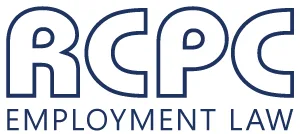Employment discrimination has been typically defined as unequal treatment at work, without justification, which is based on a prohibited hostility or ill feeling (animus). The conduct of an employer is illegal if substantially motivated by illegal discrimination.
In California, the Fair Employment and Housing Act (FEHA) prohibits discrimination on the basis of race, religious creed, color, national origin, ancestry, physical or mental disability, medical condition, marital status, pregnancy, citizenship status, military and veteran status, sex, sexual orientation, gender identity and age. The law also prohibits discrimination on the basis that a person is perceived to have a protected characteristic, or on the basis that a person is associated with someone who has or is perceived to have a protected characteristic. Employers may not retaliate against employees for exercising their rights under the FEHA.
Protected Categories
- Age Discrimination (over age 40)
- Disability Discrimination (physical or mental)
- Race/Color Discrimination
- National Origin
- Ancestry
- Religious Discrimination
- Sex (Gender) Discrimination
- Pregnancy Discrimination
- Marital Status
- Sexual Orientation
- Medical Condition
- Genetic Information
- Military Status
- Citizenship Status
- Whistleblower
The law forbids employers from making job decision based on the employee's protected status in any aspect of employment, including hiring, firing, promotions, compensation, job training and or discipline. The typical case involves an employee ho has been treated differently than other employees who are in a similar situation. An employer may also engage in illegal conduct by adopting an apparently neutral policy or practice that has a disproportionately negative impact on members of a protected class.
FEHA generally applies to employers with five or more employees. The anti-harassment provisions are applicable to employers with one or more employees.The rights afforded by FEHA may be enforced by the Department of Fair Employment and Housing (DFEH) or by a private lawsuit. Individuals wishing to file a private lawsuit alleging a violation of FEHA must first exhaust their administrative remedies by filing a charge with the DFEH. The individual is not required to wait for the DFEH to investigate the charge, and may request an immediate right-to-sue letter.






